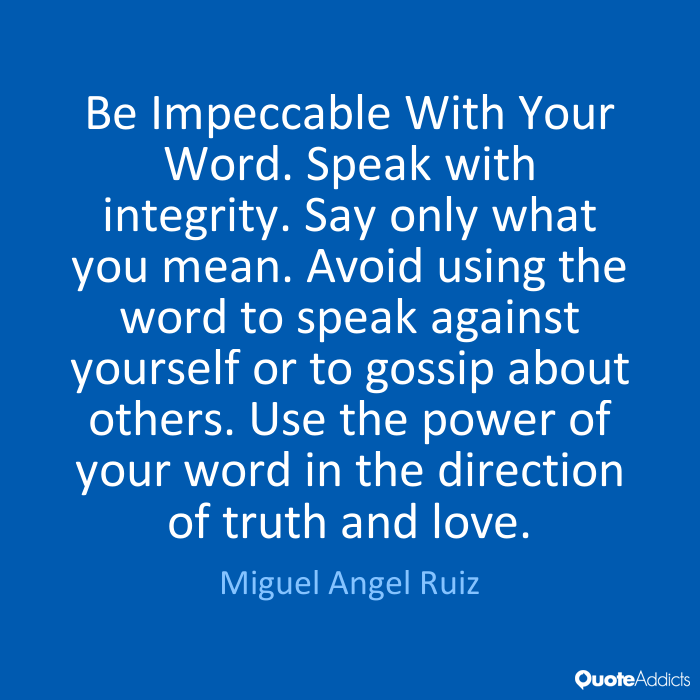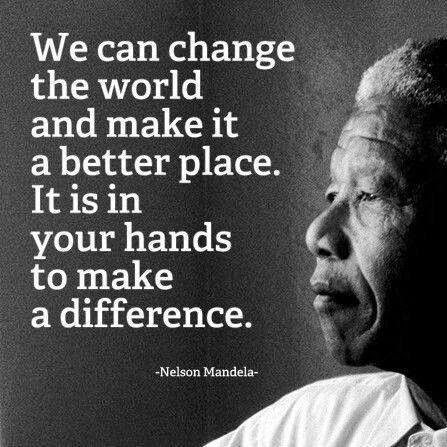A Gentleman’s Guide to The Four Agreements

Guide to The Four Agreements and More…
 Don Miguel Ruiz wrote The Four Agreements, and I’m sure you’ve no doubt read quotes from it and learned of these agreements from one source or another. Whether you read the book or not, I want to address each agreement from the gentleman’s perspective, and a few extra pieces that can help really bring it home in a big way.
Don Miguel Ruiz wrote The Four Agreements, and I’m sure you’ve no doubt read quotes from it and learned of these agreements from one source or another. Whether you read the book or not, I want to address each agreement from the gentleman’s perspective, and a few extra pieces that can help really bring it home in a big way.
The basic four agreements are:
- Be impeccable with your word
- Don’t take anything personally
- Don’t make assumptions
- Always do your very best
These are each sound pieces of advice on their own, but combined they lay the foundation for a man to be above the gossip and drama, but not above anyone – to be one that others look up to, while never looking down on them. Because this is such a powerful (and simple) exercise in making you better, I invite you into this crash course I affectionately call, “a gentleman’s guide to the Four Agreements.”
In this podcast, I’ll take you through the agreements, how and where you can apply them in your quest to be the man you were born to be, and explore examples of how they can impact your life. [remember to Subscribe Here]
Agreement #1 – Be impeccable with your word
 One of the tenets of being a gentleman is being a man of your word. This, however, is a little different. It’s not simply about honoring your promises and doing what you said you would do. It’s actually more about honoring the words you use and whether they reflect an energy and influence that is CONstructive or DEstructive.
One of the tenets of being a gentleman is being a man of your word. This, however, is a little different. It’s not simply about honoring your promises and doing what you said you would do. It’s actually more about honoring the words you use and whether they reflect an energy and influence that is CONstructive or DEstructive.
Your word is your force. You can use it to build others up, help create new opportunities, encourage others, and promote success and expansion… or you can use to it to push people down, eliminate threats, discourage innovation, a promote fear and conformity under the guise of safety. Great leaders earn respect and power because they are impeccable with their word – staying in integrity and promoting the best in others as part of a greater collective. “Together, we can make great things happen. Let’s tackle this as a team and we’ll be unstoppable.”
Poor leaders, also know as bad bosses, demand respect and power because they lack the integrity to honor the value in anyone but themselves. They are constantly fighting against what they believe is a threat to their power, and they use their word to restrict innovation and creativity to keep rule and conformity. “You’re going to get this done because your jobs depend on it. I don’t want to make cuts, but I will if I have to. Just get it done.”
I’m sure you’ve met people from both sides of that spectrum.
 Pivotal examples of each in history are Martin Luther King Jr., Nelson Mandela, and Adolf Hitler. They each held to their convictions, moved millions of people with their word, and cast a spell of influence that far outlived each of them. Even mentioning their names, you already know what kind of power and impact they had, right? That’s the power of your word.
Pivotal examples of each in history are Martin Luther King Jr., Nelson Mandela, and Adolf Hitler. They each held to their convictions, moved millions of people with their word, and cast a spell of influence that far outlived each of them. Even mentioning their names, you already know what kind of power and impact they had, right? That’s the power of your word.
The first agreement is to be impeccable with your word, meaning you need to speak truth and responsibility with the messages you give yourself and the world around you. If you want to get promoted, do not be self-deprecating and negative about it. When you do that, your word goes against what you want (a promotion), and therefore takes you out of integrity… and you never get promoted. But rather than take responsibility for your word, you blame yourself and others.
Here’s another example – imagine you had a few moments in grade school where you were bullied and told you were stupid. It continued to get reinforced and you grew up to be a hard worker, but there’s a part of you that still feels like you’re stupid. Then one day someone captures your intention and tells you that are, in fact, not stupid. Inexplicably, that moment resonates with you deeply, and a new agreement is made: I am not stupid. That’s the power of the word.
The same example works with broken hearts, missed opportunities, failed relationships, and any other weights and beliefs you carry. Consider the messages you send out to the world with your words and actions. Your word is a lot more powerful than you think it is. When you are impeccable with it, you will discover a lot less negativity shows up for you. Explore the word you share and honor, and all the agreements you’ve made with it. Change if necessary.
Agreement #2 – Don’t take anything personally
 Men can often have trouble separating complaints from criticism and that’s a recipe for suffering. When we receive a complaint, we can often see it as an attack on who we are, and therefore we get defensive. Avoiding this potential disaster is actually quite easy if you can honor agreement number two, and not take anything personally.
Men can often have trouble separating complaints from criticism and that’s a recipe for suffering. When we receive a complaint, we can often see it as an attack on who we are, and therefore we get defensive. Avoiding this potential disaster is actually quite easy if you can honor agreement number two, and not take anything personally.
Look, every day we are bombarded by opinions and musings of friends, coworkers, loved ones, and no-so-loved ones. So much of it comes at us each day, we can’t help but feel the impact of those energies, but we don’t need to accept responsibility for them. This is especially difficult for those of you that are “people pleasers” in the world.
When others start telling you what you should and shouldn’t do, or how you should and shouldn’t feel about something, any discourse away from their direction often results in you feeling bad about it. You don’t want people to think poorly of you, so you try to be accommodating. When you decide to go against the grain, you receive resistance from those same people. They are telling you what they feel is best for you and what you need to hear.
The honest truth is it’s not your problem – it’s theirs.
When you receive criticism for your beliefs, actions, or word, understand that that resistance is based on another person’s opinion. They are a projection of that person’s personal agreements about themselves and the world around them.
This rings so true for entrepreneurs who grew up in an environment where people didn’t want to rock the boat for fear of failure. In those environments, it’s considered crazy to take big risks and put it all on the line. You should have a safety net, a good job, etc. When you, as the entrepreneur, decide to put it all on the line and invest in the launch of your own ideas and business, the resistance you hear from that environment (friends, family, coworkers, etc.) is a projection of their agreement: life is scary, don’t take risks, stay safe, help people avoid failure by talking them out of crazy endeavors.
How many of you secretly have that agreement? How many of you know someone that has that agreement… and exercises it often?

When you understand that your agreements can be (and most often are) different from someone else’s, you don’t have to take things personally. Should someone tell you you’re stupid or undeserving, understand that it’s not about you – it’s about them. It always is. Some of the happiest and most successful people in the world have been criticized and called names. Their agreement is to not take it personally and to be impeccable with their word. That’s only half the story in this guide to the Four Agreements, however.
Agreement #3 – Don’t make assumptions
This is a tale as old as time. Remember in school when someone inevitably introduced you to the saying, “don’t assume because you make an ASS out of U and ME?” Yeah, me too. In fact, I still hear that ring through my head every time I notice assumptions being made.
 This agreement is huge. Our entire human experience is based on our assumptions and taking things personally. Your belief system is based on what you assume is right and wrong, and making those assumptions relate to you. Nations have gone to war based on assumptions and taking things personally. You have even gone to war in your life based on the same two agreements – whether you warred against an ideal, a boss, a concept, or a relationship, you have fought against something or someone based on assumptions. We all have.
This agreement is huge. Our entire human experience is based on our assumptions and taking things personally. Your belief system is based on what you assume is right and wrong, and making those assumptions relate to you. Nations have gone to war based on assumptions and taking things personally. You have even gone to war in your life based on the same two agreements – whether you warred against an ideal, a boss, a concept, or a relationship, you have fought against something or someone based on assumptions. We all have.
We are all graduates of Make Stuff Up University, and use our degrees and schooling every single day. We don’t see the world for what it is, we see it based on how we assume it is. We hear what we want to hear, we see what we want to see, and we speak truth only to what we believe. Gentlemen, realize your truth is only as valid as the lens through which it can be challenged. So much of what you may think is true, is only an opinion backed up by belief and perspective. That’s the definition of assumption.
One of my favorite exercises with my clients is the assumption game. It works like this:
Imagine you are walking past a friend or coworker and you say hello, but that person doesn’t respond. You keep walking a few more feet and turn around, but rather than try to get his (or her) attention again, you notice he continues walking forward. What are you making up about him now? What do you believe about what just happened? Why didn’t he respond?
Explore your assumptions. Notice what you’re making up about him and this situation. Realize what you believe is true about this interaction is only that you said hello and he didn’t respond. You have no other data. Everything else is your assumption and you taking it personally. How wrong could those assumptions be? What actions could you have taken based on those incorrect assumptions? How could they have ended in disaster?
Hopefully now you understand why you must agree not to make assumptions anymore. You’ll be better for it.
Agreement #4 – Always do your best
This agreement brings the other three into action. No matter what you’re doing or who you’re being, always do your best. Whether you’re tired or sick or healthy and ready to go, always do the best you can in that situation. Seems pretty fundamental, right? Why is this even being discussed?
Because you’re probably not doing it correctly.
Doing your best doesn’t mean doing more. It doesn’t even mean doing it right. It means giving all you can give in the capacity you can, and not feeling bad about it later. What happens most often is we give 100% when we feel good, and only 30% when we feel sick, and then make ourselves feel shame for not doing or being more.
The idea that we could have done more just makes us feel ashamed that we didn’t. If we commit to doing our best –nothing more and nothing less– we release that feeling of shame. There will always be someone who could do what we do better or differently, and make it look easy. Our best and that person’s best are two different things, and making yourself feel like crap for not being at the level they are is a waste of your time and energy. Don’t be that guy.
When you are doing your best, you take action toward the things in your life that fulfill you. You’ll do your best and feel satisfied in the work you do, the time you spend doing it, the activities you have with your friends and family, the relationships you’re in – you let go of the need to be or do someone else’s best, and instead focus on your own.
One of the greatest examples of this is Forrest Gump. Stay with me here…

He had no big ideas. He didn’t have an agenda. He was always taking action though. He was always giving his best in every action he took. No more. No less. He was happy because he was doing his best, and not the best of someone else. He was handsomely rewarded not because he was promised the reward, but because he was giving his best and letting the expectation go.
It may sound trivial, but so many of us envy that part of his character. We wish we could just let go, give our best, and be rewarded in the end. The truth is, we can, but we have to make it part of our agreements.
I started The Sharp Gentleman because I know there’s more to men than just fancy clothes and finer things. My coaching background gives me insight to help men wake up to the idea that they’re in control and can become the men they were born to be, if they choose to. Part of that choice is waking up to your own personal power and agreements. This guide to The Four Agreements is an excellent place to start, and I hope this crash course helped to clarify how you can begin exploring your own agreements as a modern gentleman.
Which agreement do you feel may have the biggest impact in your life?
What other personal development resources or lessons do you feel helped you?
Let me know in the comments below! And remember to SUBSCRIBE to the podcast!




